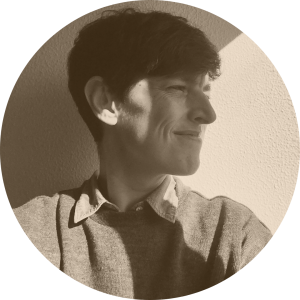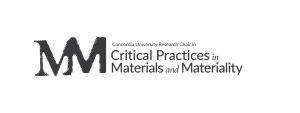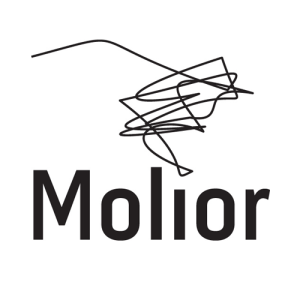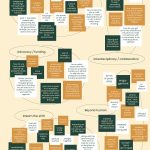Publication written by Carmen Salas
Published in June, 2024
This publication is a short wrap-up of the collaborative workshops held online between April 22nd and May 2nd, 2024, as part of the project Think Systems. It responds to an invitation from Molior to contribute my reflections, based on my experience both as a participant and as the person who conceived the Think Systems project.
Think Systems
Think Systems was conceived in 2021 as an experimental initiative to explore how arts and culture players perceive the role of the arts in the context of our interconnected reality, and the struggles, hopes and opportunities they see for their community and society in the transition towards a more just and sustainable future. The overall aim of the project was to inspire artists and the arts and cultural sector to think more systemically about the arts, society, and the world so they can become more transformative in their work and projects.
Online workshops
Throughout Spring 2024 Molior worked with Jana Awad to design and run a series of 4 online collaborative workshops. The participants included 6 professionals from the art and culture world and the systems thinking and systems field. Molior’s director Aurélie Besson and I also joined the group. These workshops were an opportunity to test some of the ideas I outlined for the Think Systems project.
The aim of the workshops was to create a space to collectively reflect on the interconnected challenges of the present day, as well as to envision the future we want for art and society.
As there was no requirement to settle on certainty, or to obtain a predetermined outcome, the workshops created a space in which multiple perspectives, common concerns, as well as uncomfortable ideas and facts were able to come to the fore. The workshop process was designed to show a possible multiplicity of outcomes, and it welcomed participants’ emotions, comments, and worldviews.
Workshop participants
Molior and I wanted to put together a group with a wide diversity of voices and geographies and we thus chose participants based on their contribution to aspects related to interdisciplinarity, social practices, and artistic research. We also sought participants whose practices lie outside the traditional parameters of the arts and institutionalised structures, or who work directly in transition and change.
Participants:
- Miguel Braceli | LA ESCUELA___ : Artist and founder of LA ESCUELA___
- Noémie Fortin : Independent curator and art critic
- Dr. Alice Jarry : Associate professor, Design & Computation Arts Concordia University Research Chair in Critical Practices in Materials and Materiality.
- Paola Palavidi (HYPERCOMF) : Artist and co-founder of Hypercomf
- Cassie Robinson : Strategic designer, systems practitioner
- Grace Samboh (HYPHEN-) : Researcher, writer, curator
- Amahra Spence : Artist, curator, cultural worker, strategist
Workshop 1: Introductory Session
This workshop was set as the starting point from which to connect with one another and to collectively explore the potential of systems work, and of art and systems thinking in the context of the current ecosocial crisis.
Cassie Robinson gave us a glimpse of her life as a systems practitioner by drawing connections between the frameworks she uses to inform her practice, the work she does at the Joseph Rowntree Foundation, and the role she believes art and culture play in systemic transformation. She highlighted creating the conditions for alternative patterns and futures to emerge by doing the “soil work.”
Some of the group thoughts following Cassie’s presentation permeated the rest of the workshops.
These thoughts included:
“It is crucial to talk about art and imagination as a key part to systemic change that can shift perceptions.”
“Wealth transition, climate transition, and just transition are cultural transitions. Culture-making is full-stack.”
Workshop 2: Open Space Technology
One of the aims of Think Systems is to help artists conceptualize how their practices relate with the larger whole. To this end, we used a format called “Open Space Technology,” which allowed us to tap into the group’s collective experience to answer the following question: “Everything is part of an interconnected and interdependent ecosystem. Art both influences and is influenced by the larger whole. Thinking of art as an integrated part of this system, how can we harness this capacity to help society envision and shape alternative futures?”
What ideas and themes emerged from this session?
Theme 1: New Ways of Knowing
The first theme to emerge from this workshop was that of embodied experiences of knowledge or new ways of knowing. Amhara Spence discussed “body memory,” or the notion that all bodies have memories worth listening to. This powerful tool helps us remember our experiences and interpret and understand reality in a less rational, overly structured, or rigid way. Not only is body memory important in assessing knowledge and wisdom beyond words and “market logic” for non-Western cultures (Spence), Paola Palavidi shared that embodied experiences can encourage audiences to embrace and acknowledge new ideas. Other participants highlighted the role of the arts as an entry point for learning from those ancient wisdoms.
Theme 2: Interdisciplinary Collaborations
Participants emphasized the importance of flexibility, time, resources, and the willingness to learn from one another in order to generate meaningful emergence in the context of cross-disciplinary collaborations. While Alice Jarry stressed the need to “deprogram” the usual ways of working in science and academia, Noémie Fortin highlighted the potential of re-enchantment with one’s practice and the land when working closely with farmers. Paola Palavidi highlighted the need to re-learn how to collaborate and to “re-examine our egos,” and to understand that collaboration is about risk-taking and trust. She also spoke about the need to create a space for understanding and sharing that is “non-judgmental” and “non-critical.”
Theme 3: Beyond Humans
Throughout this theme, participants underlined the need to rethink our relationship with nature and to reconnect with it in a non-dominant and non-hierarchical way. Miguel Braceli spoke about “learning from nature” and “being in conversation with nature” as a way to challenge the biased narrative that exists in this relationship. Other participants talked about the need to engage with nature with humility and in a more sustainable, caring, and thoughtful way. Reviving elder and native knowledge as a means of restoring equilibrium to both the environment and ourselves was another key idea explored during this theme.
Theme 4: Advocacy/Funding
This session revealed a general sense of exhaustion in relation to arts funding, especially as access to grants is becoming increasingly laborious and competitive. Participants highlighted the need for the funding system to change in order to adapt to the current state of the world. The question of how to operate as independent entities without relying on public funding also arose during these conversations. Concerns over the lack of institutionalized support for community-based, participatory, or processual practices that occur outside conventional art spaces—what I refer to as “art beyond the white cube”—were voiced by several participants.
Theme 5: Dreaming the Shift
This theme allowed us to exchange ideas about what “dreaming the shift” means in the midst of a constant and accelerating ecosocial crisis where local and global injustices and challenges are more interconnected than ever. As one participant stated, enduring the grief and suffering we are currently experiencing requires a kind of discipline or practice. This might include the practice of spirituality, imagination, care, love, and friendship. Because discipline is hard to practice, we all agreed that making space for it and learning how to dream and imagine the changes we want to see realized in our world is fundamental to get us out of the mess we are in. Towards the end of this session, a connection between dreaming, motherhood, and sustainability emerged. Amhara Spence referenced the book “Revolutionary Mothering,” which talks about the birthing of anything that is radical. Noémie Fortin emphasized the idea of thinking of sustainability not only in the context of the environment but also in the arts, particularly for mother-artists like her. Paola Palavidi brought up the concept of “dream feeding” to illustrate the connections between the brain and the act of dreaming, as well as between the past and the future.
Workshop 3: Thinking the Future
Workshop 3 was structured around two main exercises. The first exercise prompted us to reflect on the present by establishing connections between our practices and the sectors and systems in which we operate. The second exercise involved projecting us into the future to collectively write a letter from where to envision the desired state of that future.
What emerged from this session?
The concept of “fluidity” played a central role in one of the breakout rooms. Miguel Braceli spoke about a vision of the future in which the institutions, states, and systems that create borders and restrictions become more permeable and flexible, enabling for greater mobility, exchanges, diversity, and collaborations to unfold. He also emphasized the importance of creating room for joy and celebration as a means to nurture the community and fight hatred and uncertainty. In another room, Grace Samboh highlighted the importance of considering others and promoting “social solidarity” as a means of survival for the future.
Letter from the future written by Noémie Fortin, Paola Palavidi and Cassie Robinson.
Dear Think Systems participants,
In our future, there will only be artists because all the other jobs will be extinct. Everything will be done through AI, there will only be a need for artists to create everything that is not directly functional. It’s also a kind of sense that our future, your present, is probably very minimalistic and driven by functionality.
Focusing on the positive, we hope that such technologies can be used to make life and the systems that are part of it less busy with mundane tasks to leave more space for creative endeavours, and to reconnect to the natural cycles around and within us.
We need practical and action-based creative practices.
This future is rooted in a much healthier and honest relationship with death, loss and grief in the ecology of institutions and organizations–where following the natural cycles of life is the ‘norm’–even for such structural forms. The compassionate hospicing of organizations and institutions creates really good, nutrient-rich compost for what’s coming next to emerge – and so the cycles continue. Arts and cultural practice is inherent in all these contexts–creating rituals, ceremonies, and artefacts that give meaning to such transitions.
Workshop 4: Transforming the Present
The last workshop was an opportunity for participants to reflect on art’s potential to influence the present. The exercises allowed us to explore two dimensions of our work: the ways in which the arts contribute to maintaining the status quo and, on the other hand, the actions that can disrupt that status quo and pave the way for transformation. The five themes identified during the Open Space Technology workshop served as a foundation for organizing our approach to the exercises.
What emerged from the section on maintaining the status quo?
Under the “New Ways of Knowing” theme, participants identified four major areas that perpetuate the status quo. These included keeping academic silos, making information and knowledge inaccessible or incomprehensible to the general public, standardizing exhibition and conference formats, and “not listening to ‘non-experts’ or the less formally educated.” The areas identified under the Interdisciplinary Collaborations theme revolved around the concepts of scarcity of resources, individualistic mindsets, and superficial collaborations. The biggest barriers to funding were short-termism and predeterminism.
What emerged from the section on challenging the status quo?
The four main actions to challenge the status quo identified by the group throughout all of the themes were the integration of different disciplines, willingness to collaborate with individuals outside the field, embracing risks, and building trust, as well as providing support for radical and unconventional ideas. Paola Palavidi emphasized how failure and risk-taking affect any attempt to alter the status quo:
“In the process of challenging the status quo, it is hard to explore ways of change if everyone is so rigid and judgmental of the efforts you are putting into creating that change” … We need to be more open, less critical, and accept that people are doing their best, and not expect everything to thrive at first… and also accept failure as part of the process.”
Observations and conclusions
A culture that refuses to see life as a whole and that undermines the value of collectivism and connectedness feeds the imbalance in ecosocial systems, leading to issues like climate change. Today, there is unequivocal evidence that the climate crisis is not a single problem with a single cause and a single solution. It is an all-encompassing crisis that connects all aspects of human life. Therefore, interdisciplinary mindsets and practices, such as those nurtured by the Think Systems project, prove to be crucial in today’s scenario, holding the key to helping us build a better and more sustainable world.
Introducing systems thinking is not necessarily as easy as it sounds. Since this is still a relatively new area for the arts, it is important to provide participants with a comprehensive understanding of systems. This should include what systems thinking entails, how this approach can shape our work, and the importance of these types of projects in light of the interconnected crisis we are facing as a society. Juggling time-demands, group dynamics, and individual preferences is not an easy feat, but it seems these things must be given the resources necessary to encourage participation and engagement.
Furthermore, it also became clear that participants need space and time to contextualize their work and practice in the broader system. There were times when participants changed the dynamic of the breakout rooms to encourage greater discussion about their practices and projects. Providing more time and room for participants to situate themselves, contextualize and validate their practices, and establish connections with and comprehend others proved to be beneficial in this particular setting. These short rapport-building conversations resulted in more fruitful and positive collaboration in the following exercises.
One of the main ideas that emerged in these workshops points to interdisciplinary collaborations as a way of dismantling rigid boundaries, breaking down silos, allowing for new connections and knowledge to permeate in many directions, and for thinking about complexity and societal systems in a way that enables change. Participants highlighted collaborations between artistic and non-artistic fields as a way to enrich one’s practice and the practice of others, as well as to bring us closer to nature. Native and elder wisdom, dreaming, imagination, and the “undisciplinary” were discussed as essential components in the arduous but necessary task of transforming the unsustainable systems that cause harm and erode the social and ecological fabric of life.
There was a general consensus amongst participants about the need for more funding and resources to “dream the shift” and to enable other ways of knowing, understanding, working, and connecting with one another and the world around us, especially at a time when imagining alternative futures seems to be so challenging.
“I want to ‘dream the shifts’ more often, every day, and keep trying to make them happen through my work” – participant’s takeaway.
Amidst the current sea of chaos and uncertainty, experiments of this nature can be seen as small, discrete, and perhaps still imperfect structures that, over time, might have the potential to become what complexity scientist Ilya Prigogine referred to as “small islands of coherence with the capacity to influence the entire system.”
I hope we were able to plant a seed of inspiration in the participants’ minds so that they will approach their lives and work from a more ecocentric and holistic perspective. The more people acknowledge a less hyper-individual and a more relational and reciprocal worldview, the better for our society and the planet’s future. I encourage participants and readers to continue thinking about what role they want to play in change, as well as how they can harness this capacity to help society imagine and shape better and more sustainable futures.
I would like to extend my thanks to all of our workshop participants for their generosity in sharing their time and ideas with us. They showed great kindness in contributing to this experimental process. Thank you for making this experience worthwhile.
If you are using this document in your own writing, our preferred citation style is: Salas, Carmen. 2024. Think Systems. Montreal: Le Groupe Molior. https://molior.ca/en/think-systems-publication/.
This work © 2024 by Carmen Salas is licensed under Creative Commons Attribution-ShareAlike 4.0 International.
Carmen Salas

Carmen Salas works as a curator and cultural producer on an international scale. She holds a BA in History of Art from Granada University (Spain), and an MA in Arts Policy and Management from Birkbeck University, London.
A key part of her practice is working with artists and institutions to explore change through a lens of creative experimentation, collective reflection and debate. Exploring the capacity of the arts and culture in questioning societal systems and in bringing about change is central to her work.
After more than 15 years examining the creative and critical use of technology, and the intricacies of the internet, Carmen reoriented the focus of her work to narratives and approaches more mindful of the rapid social and environmental changes we face today. Most recently, she’s been involved in exploring the relationship between art, systems and change, as well as the need to advocate for a different value framework for the arts; one in which the key outcomes are people, relationships and the health of the planet.
Curiosity, purpose, and connecting people from different walks of life motivate her work. By creating structures for knowledge exchange, Carmen believes social innovation and personal transformation can occur more easily. Her passion lies not only in the arts, but also in all areas that reveal the reciprocal connections of the human condition such as science, philosophy, sociology.
Carmen founded Connecting the Dots, an international forum based in Mexico City focused on creativity, art, and digital culture, and has worked as creative director since 2018. Between 2017 and 2019 she curated the Paradigm Shift Forum for the Mapping Festival in Geneva. In 2009 she co-founded Alpha-ville in London, an international festival dedicated to exploring the intersection between art, technology and digital culture, which became a curatorial agency and creative studio in 2011 and developed activity on a national and international scale until 2017.
She has recently co-curated the exhibition “Sea Blindness” for NeMe Arts Centre in Limassol, Cyprus. Since 2021 she has been advising the 2026 Trenčín European Capital of Culture team on their artistic and cultural strategy. From mid 2024, she will be leading the production and implementation of two projects as part of the Trenčín European Capital of Culture program.



